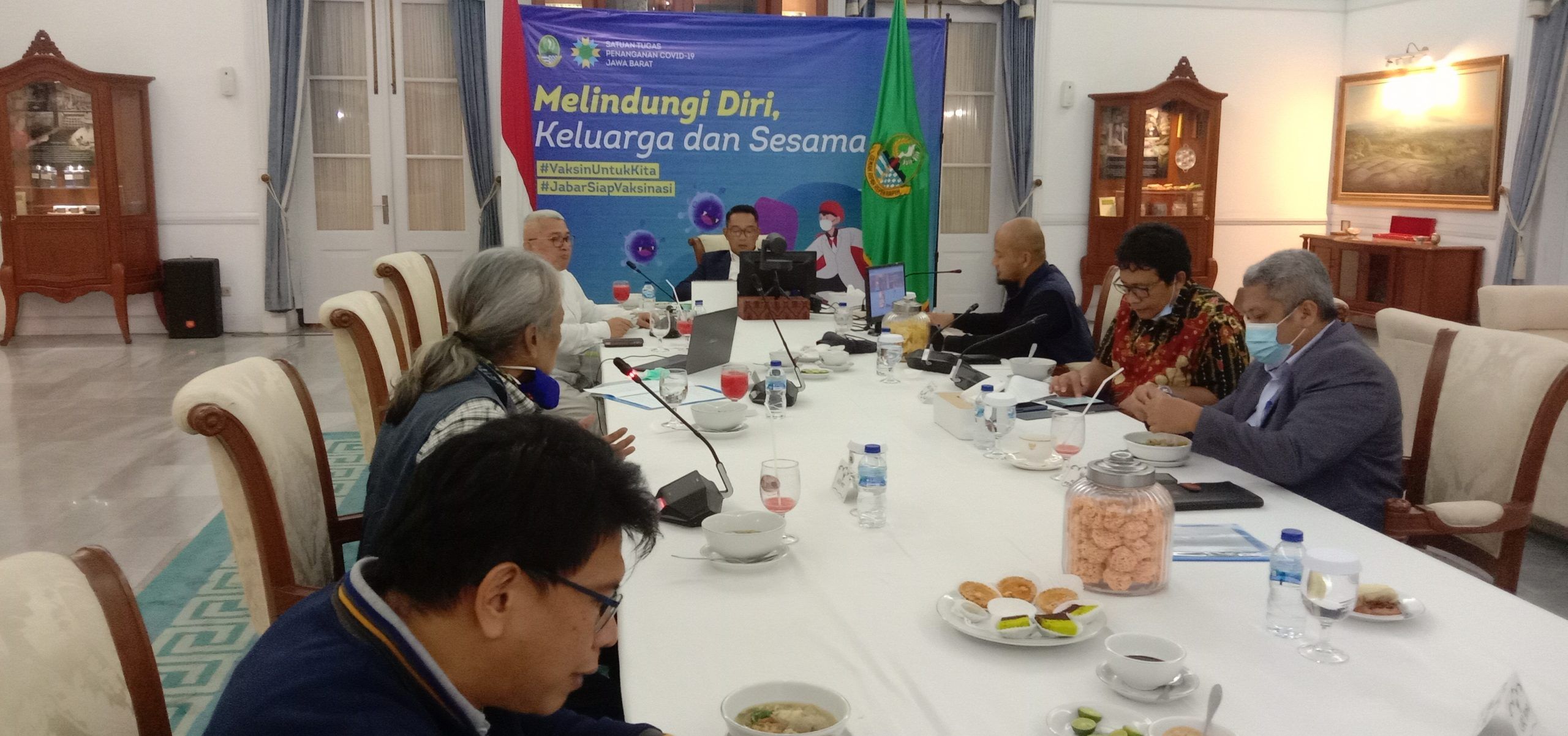Bandung, 26 March 2021 — Elected as the General Chairperson of the Regional Association for Producing Oil and Gas and Renewable Energy (ADPMET) for the term of 2020-2025, the Governor of West Java, Ridwan Kamil, clearly stated in his inauguration that ADPMET would focus on developing renewable energy or waste-based biofuel, animal and plant excrement.
The seriousness of ADPMET regarding renewable energy development and energy transition was shown by Ridwan Kamil’s initiative to invite parties who consistently utter these two issues to discuss the Draft Bill on New and Renewable Energy (RUU EBT) at the West Java Governor’s office (26/3). Invited, the Institute for Essential Services Reform (IESR) provided views and exposures related to renewable energy and the RUU EBT.
Fabby Tumiwa, Executive Director of IESR, explained that, although the energy transition movement has globalized significantly and many countries in the world such as the European Union, India, China, Chile are developing renewable energy massively, Indonesia still records very low achievements in terms of energy mix targets renewable. Of the 23 percent in 2025, Indonesia was only at 11.5 percent at the end of 2020.
“In 2020, there will only be an additional 187.5 MW of installed renewable energy generating capacity. It means that it barely grows about 1.8 percent annually. Very slow, “he explained.
Meanwhile, based on the results of the latest IESR study on the technical potential of PLTS entitled “Beyond 207 Gigawatts: Unleashing Indonesia’s Solar Potential”, Indonesia has the potential for solar energy that far exceeds the official figures released by the Indonesian government.
“Indonesia has the potential for solar PV (photovoltaic) to reach 3,000 – 20,000 GWp. This potential is 16 to 95 times higher than the official estimated potential data released by the Ministry of Energy and Mineral Resources, which was 207 GWp (ESDM, 2016). If this technical potential is utilized, it can produce electricity of 27,000 TWh per year, almost 100 times the current electricity demand, “he said.
In his explanation, Fabby also explained the technical potential that West Java province possesses, based on IESR calculations using geospatial data by identifying suitable land for solar PV. Mapping results show that with a maximum area of 16,746 km2, West Java has a maximum technical potential for solar power of 687 GWp.
Such an immense potential of renewable energy should be a luminary in the RUU EBT. As it is also clearly written as a basis for consideration of the drafting of the RUU EBT, energy transition needs to be accelerated towards a sustainable national energy system. However, the RUU EBT, which is still being discussed in the DPR, includes elements of new energy. It means that this bill does not focus on supporting renewable energy only. The definition of new energy is energy produced by new technology with non-renewable or renewable energy sources (PP 79/2014) such as nuclear, fossil energy processing such as coal gasification, and also liquefied coal. It implied that the RUU EBT is still dominated by non-renewable energy, therefore, it is against the principles of the sustainable energy system itself.
IESR views that Indonesia needs a law that focuses on supporting renewable energy. Indonesia can refer to India or China, which already has a Renewable Energy Law so that their renewable energy development is growing rapidly.
“The existence of the Renewable Energy Bill will show the seriousness of the government in developing renewable energy so that it will give a positive signal to stakeholders, especially investors. Currently, regulations regarding renewable energy are at the level of weaker regulations, such as Presidential Regulations, Ministerial Regulations so they are vulnerable to changes and preferences of sectoral ministers, “added Fabby.
Furthermore, in his explanation, Fabby encouraged the EBT Bill to specifically state policies that support renewable energy. Firmness in this policy will be beneficial in creating a market/demand for renewable energy, setting a viable renewable energy price, providing incentives/support for renewable energy exploitation, providing renewable energy development funds, establishing renewable energy governance and institutional arrangements, and increasing community participation in renewable energy development.
Responding to IESR’s explanation, Ridwan Kamil expressed his gratitude and immediately appointed the West Java ESDM Office to explore the technical potential of renewable energy in West Java for better development.

